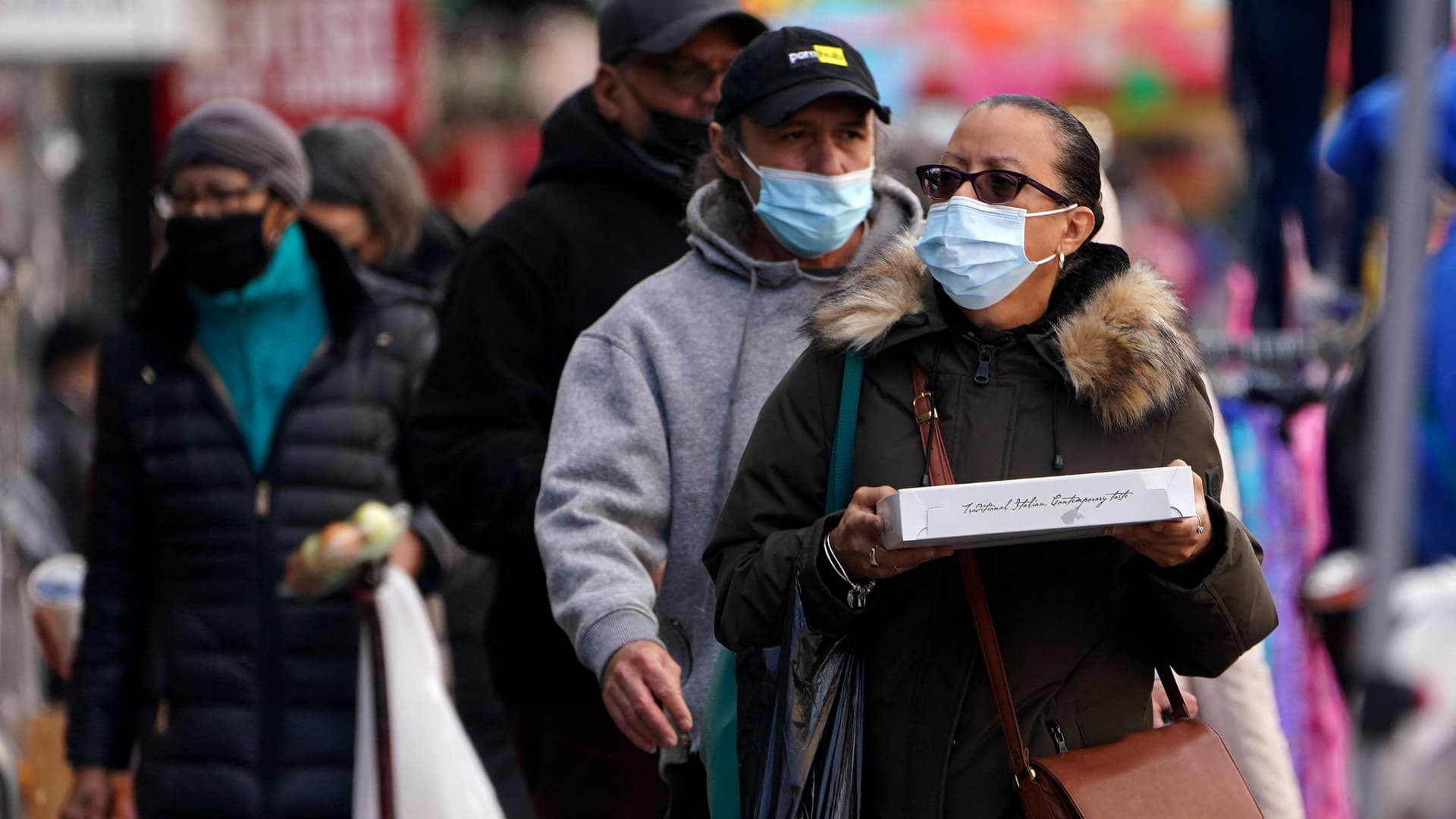The Centers for Disease Control Prevention on Monday encouraged people to wear masks to help reduce the spread of respiratory illnesses this season as Covid, flu and RSV circulate at the same time.
CDC Director Dr. Rochelle Walensky, in a call with reporters, said wearing a mask is one of several everyday precautions that people can take to reduce their chances of catching or spreading a respiratory virus during the busy holiday season.
“We also encourage you to wear a high-quality, well-fitting mask to prevent the spread of respiratory illnesses,” said Walensky, adding that people living in areas with high levels of Covid transmission should especially consider masking.
The CDC director said the agency is considering expanding its system of Covid community levels to take into account other respiratory viruses such as the flu. The system is the basis for when CDC advises the public to wear masks. But Walensky encouraged people to take proactive action.
“One need not wait on CDC action in order to put a mask on,” Walensky said. “We would encourage all of those preventive measures — hand washing, staying home when you’re sick, masking, increased ventilation — during respiratory virus season, but especially in areas of high Covid-19 community levels.”
About 5% of the U.S. population lives in counties where the CDC is officially recommending masks due to high Covid levels. The CDC continues to recommend masking for anyone travelling by plane, train, bus or other forms of public transportation, Walensky said.
People with weak immune systems and those who otherwise face a heightened risk of severe disease should also consider wearing a mask, the CDC director said.
Walensky strongly encouraged everyone eligible to receive their flu shot and Covid booster. Flu vaccination coverage is lagging for at-risk groups — children under age 5, pregnant women, and at-risk seniors — compared with last year, the CDC director said. There is no vaccine for RSV.
“I want to emphasize that the flu vaccine can be life saving and importantly, there’s still time to get vaccinated to be protected against flu this season and its potential serious consequences,” Walensky said.
The flu has arrived early and hit the U.S. hard with hospitalizations at a decade high for this time of year. More than 8.7 million people have fallen ill, 78,000 have been hospitalized, and 4,500 people have died from the flu this season, according to CDC data. Fourteen children have died from the flu so far this season.
More than 19,000 people were hospitalized with the flu during the week ending Nov. 26, nearly double the previous week, according to CDC data.
People hospitalized with Covid also increased 27% during the week ending Dec. 2, according to CDC data. And respiratory syncytial virus, or RSV, has been hospitalizing children at higher rate than in previous years. Walensky said RSV appears to have peaked in the Southeast and may be leveling off in the Mid-Atlantic, though circulation of the virus remains high in much of the nation.
“We now face yet another surge of illness. Another moment of overstretched capacity and really one of tragic and often preventable death,” Walensky said, as she thanked health-care workers for their service during the repeated surges of illness they have confronted since the Covid pandemic began.
Dr. Sandra Fryhofer, board chair of the American Medical Association, said the circulation of Covid, flu and RSV at the same is a “a perfect storm for a terrible holiday season.” Fryhofer said she understands many people are tired of receiving repeated Covid shots, but getting vaccinated is the best way to avoiding falling ill over the holidays.
“You could get really, really sick this year and ruin your holiday celebrations if you don’t get vaccinated,” Fryhofer said during Monday’s call.
The Children’s Hospital Association and the American Academy of Pediatrics last month asked the Biden administration to declare a public health emergency in response to the surge of pediatric hospitalizations from RSV and the flu.
